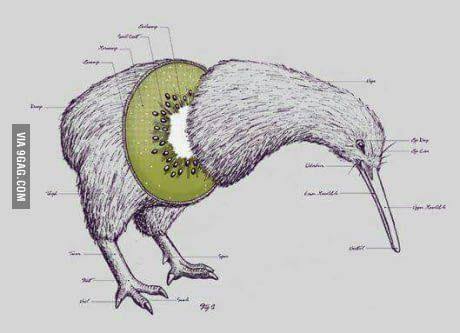Yes, instead of being negative about it, we could promote the number of deaths in an aspirational way. Treat it like GDP - the more the better. It’s a sign of a vibrant economy.
- 0 Posts
- 14 Comments
Seems like a good move. It’s a crap dynamic at this point. Maybe later we could re-federate once the numbers aren’t so skewed. If people from there feel the need to discuss NZ issues they still have options. They can join here. They can make their own NZ sub if NZ issues are so important to them.

 1·1 year ago
1·1 year agoYou are right, it’s what people want.
The way to incentivise smaller vehicles (and less private vehicle travel generally) is through RUC and congestion charges. If we paid for road usage based on weight/footprint the demand for bigger cars wouldn’t be so high.
If we had price rationing at peak times (commute, school run etc.) then people would be incentivised to pool, use alternatives, etc.
The emissions from building more roads and parking spaces is non-trivial too.

 1·1 year ago
1·1 year agoAlternatives aside for the moment, what we currently have seems to be populist governments dishing out subsidies to private vehicle owners (free roads, free parking, free money for EVs). It seems to work in terms of getting elected. Yet it incentivises people to live far away from their places of interest - work, school, family and friends, and drive everywhere to make up for that.
Maybe a combination of tech will allow us to properly price things like traffic, parking, resource use. Then we may find that suburbia is less sensible economically, or that more living and working is moved out to where people are housed.
Yes, a simpler life in general. Less powerful, more connected.

 2·1 year ago
2·1 year agoYean but I’m not comparing it to some other existing vehicle. We apparently want to get our emissions down? Smaller vehicles. Less road miles. The current pattern of switching to EVs does something. It also continues existing behaviour. I think it is an attractive option for many people. “Buy a new car and get to feel good on multiple fronts”. In terms of addressing the root of our problems it does very little.

 3·1 year ago
3·1 year agoSure, pollution in that narrow sense is about direct health effects, and is kind of a side issue. What I’ve noticed is that some critics of this move to EVs see things in a different light. Take car designers Gordon Murray and Adrian Newey, both scathing about the way this is playing out. What we are getting to replace our ICE vehicles is not a new wave of efficient EVs. Everyone is gravitating to SUV EVs which are hideoisly inefficient. It’s like the McMansion-isation of personal transport.
IF the goal is to reduce total emissions we are going about it the wrong way. We should be tax-encouraging K-cars (EV) and other micro-transport options. Instead it has turned into another consumerism feeding frenzy. We are ending up with more, not less.

 71·1 year ago
71·1 year agoI think the focus on cars is a bigger problem than what energy source they use. EVs are taking over anyway, there is no standing in the way of that.
If we want to reduce emissions (pollution isn’t much of a problem in windswept NZ) then we need to focus on more efficient modes of transport and lifestyles. Not more cars.
We will still be able to import used EVs from Japan, if converting our domestic fleet is a goal.

 16·1 year ago
16·1 year agoObviously it is impossible for Aldi to open stores in New Zealand as long as it remains a nation apart.
What should this new nation be named, New Aldistan?
I wonder if some of those cost increases are boosting the Australian parent’s revenues? I’ve seen some house branded stuff go up in price significantly compared to competing products.
Also, seeing that “Rental, hiring and real estate services” ranks above things like education tells a story about our priorities.

 3·1 year ago
3·1 year agoNever did like those flags. Shame no one came up with a compelling design. Perhaps it wasn’t the time?

 4·1 year ago
4·1 year agoIn terms of providing fat/protein for processed food, agree that it is probably a sunset industry. Milk powder will become lab 100% or close to that.
Old-school dairy will still exist, for things like boutique cheeses. Terrior is important in that market. The fonterra model of pumping out mega-tonnes of generic product is irrelevant. Those who want to remain dairy farming should be forming relationships with individual cheese makers and developing cheeses that reflect their locality.
As factory created protein takes over, there will be more focus on “destination” food experiences as a way for land based farmers to carry on. Tourism and dining with farm visits to see a cow, that sort of thing. $$$. Most people won’t bother, just stick to product for their dietary needs.

 6·1 year ago
6·1 year agoYou are 100% correct. The actual market response in this case is “prices set to FALL in respose to retail slump”.
Our media is economically illiterate (or paid to print this crap).

Great performance - managed to get the car home in one piece in challenging conditions.
Hope he gets more opportunities.